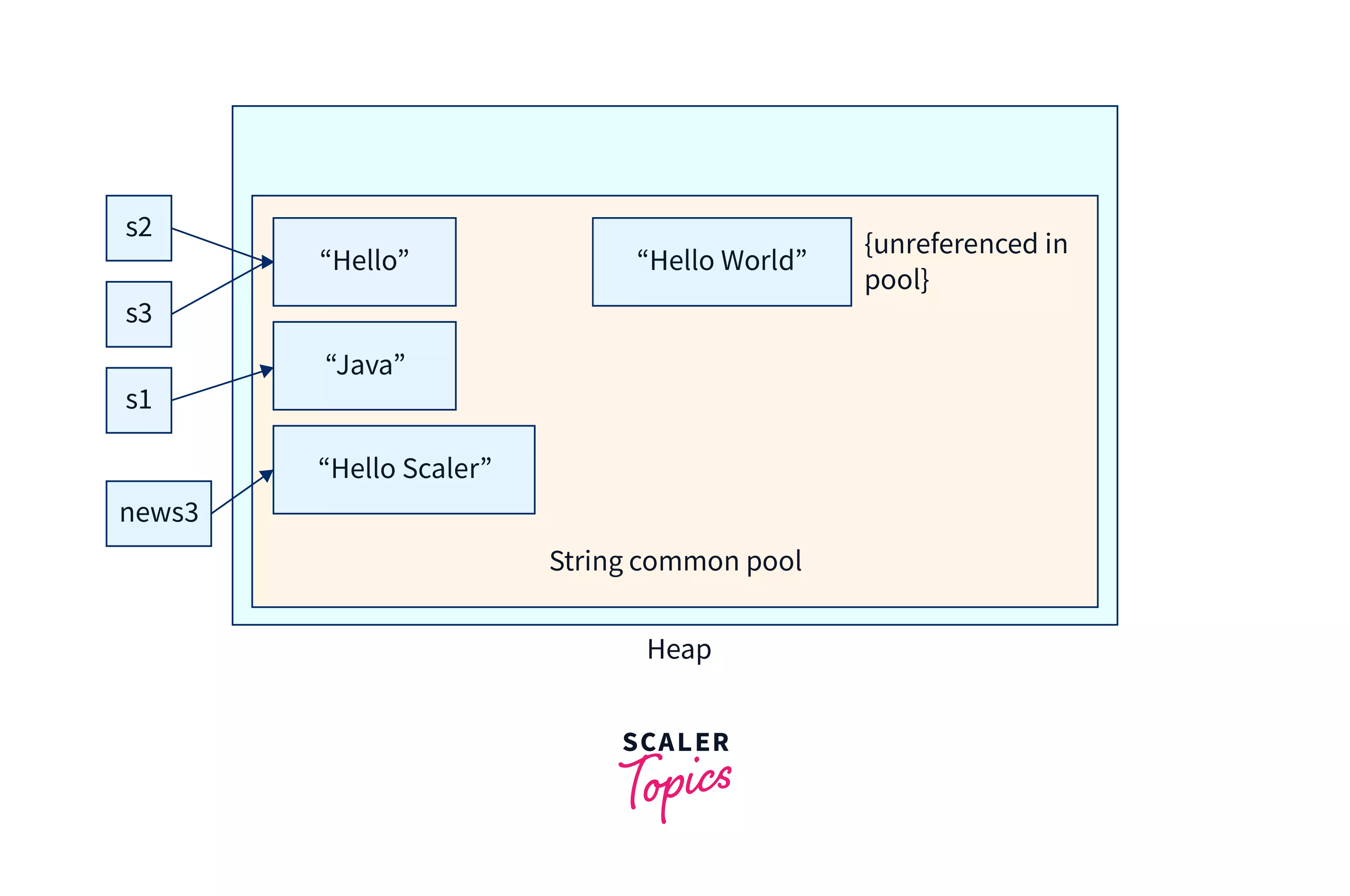Why Are Strings Immutable in Java? Important Understanding for Designers
Wiki Article
Exploring the Benefits of Unalterable Strings in Modern Programs Paradigms
In the world of modern-day programming paradigms, the concept of unalterable strings stands as a foundation of durable software application growth. By embracing unalterable strings, developers can ensure enhanced information integrity, boosted thread security, simplified debugging procedures, boosted protection steps, and reliable performance optimization.Enhanced Information Integrity

By stopping the modification of string items, immutability removes the danger of unintentional adjustments to the information they hold. This not just boosts the protection of the info but likewise enhances the integrity of the code that relies upon these strings.
Immutability likewise sustains much safer multithreading settings, as simultaneous access to immutable strings does not pose the threat of data corruption with synchronised modifications. This property simplifies the procedure of managing strings in parallel programming scenarios.
Fundamentally, immutability functions as a protective guard around the data kept within strings, boosting their stability by guaranteeing that once defined, their values stay the same throughout the program's implementation.

Improved Thread Security
Immutable strings enhance the thread security of programs by ensuring that as soon as a string things is produced, its worth can not be changed. This residential property eliminates the danger of concurrent threads attempting to modify the exact same string simultaneously, which can lead to data corruption or irregular states in the program - Why are strings immutable in Java?. In a multi-threaded atmosphere, where numerous strings accessibility and adjust information all at once, the immutability of strings gives a level of security by guaranteeing that the data stays unmodified throughout its lifecycleSimplified Debugging Processes
Provided the improved thread security promoted by immutable strings, a substantial advantage arises in the realm of streamlined debugging procedures. Immutable strings, once produced, can not be altered, making it easier to trace the flow of information and determine the resource of pests in a program. This immutability makes certain that strings continue to be consistent throughout the implementation of the program, decreasing the possibility of unexpected modifications that might bring about errors.When debugging with mutable strings, developers often run into problems where a string's value is customized unintentionally, making it challenging to pinpoint the root cause of an insect. Nonetheless, with immutable strings, the data stays the same, enabling designers to concentrate on evaluating the actual logic of the code instead than locating where and when a string was changed inaccurately.
Furthermore, immutable strings streamline the debugging procedure by making it possible for easier reproduction of bugs. Considering that unalterable strings do not change state, programmers can recreate and study pests much more successfully, causing quicker identification and resolution of concerns within the codebase. This structured debugging operations inevitably adds to greater software high quality and boosted overall advancement efficiency.

Increased Security Actions
Enhancing data defense and fortifying system stability, the use of immutable strings in software program applications adds substantially to increased safety and security measures. Immutable strings additionally play a crucial role in protecting against usual safety and security susceptabilities such as barrier overflows and SQL shot attacks, as efforts to adjust string information at runtime are naturally restricted.Additionally, the immutability of strings improves the predictability of program actions, making it easier to verify inputs and avoid unanticipated adjustments that could endanger safety. This predictability simplifies the my blog procedure of auditing and verifying code, enabling programmers to determine potential safety loopholes a lot more effectively. Generally, including unalterable strings right into software program growth techniques not only improves the robustness and dependability of applications yet also reinforces their resilience versus safety risks.
Effective Performance Optimization
When dealing with mutable strings, operations like concatenation or substring development commonly result in the development of brand-new string things, leading to memory expenses and boosted handling time. By allowing strings to explanation remain stable and continuous, immutable strings facilitate far better memory administration and caching chances, inevitably increasing the total efficiency of the software program.
Immutable strings likewise play an important function in multithreaded settings by promoting thread security. Why are strings immutable in Java?. Considering that unalterable strings can not be changed as soon as developed, they can be shared across strings without the threat of unexpected changes, decreasing the requirement for synchronization systems and improving concurrency. In addition, unalterable strings simplify debugging processes as designers can rely on that a string's worth will stay constant throughout the program's execution, removing prospective mistakes caused by mutable state adjustments. In conclusion, making use of immutable strings not only improves safety however also substantially adds to the effective efficiency optimization of modern-day software application systems.
Conclusion
Finally, the benefits of making use of unalterable strings in modern-day programming paradigms can not be overemphasized. Boosted information integrity, boosted thread security, streamlined debugging procedures, increased safety procedures, and efficient performance optimization all add to the total performance of programming jobs. By including unalterable strings into programming practices, designers can benefit from an extra dependable and durable codebase.Immutability, a key feature of strings in shows languages such as Java and Python, makes certain that once a string item is developed, it can not be changed or changed.Unalterable strings improve the thread safety and security of programs by guaranteeing that once a string item is produced, its value can not Home Page be modified. Unalterable strings additionally play an essential function in protecting against typical protection vulnerabilities such as barrier overflows and SQL injection assaults, as efforts to control string data at runtime are naturally restricted.
By permitting strings to continue to be unchangeable and consistent, immutable strings promote much better memory administration and caching possibilities, ultimately improving the total efficiency of the software application.
Unalterable strings streamline debugging processes as designers can trust that a string's worth will remain constant throughout the program's implementation, getting rid of prospective errors caused by mutable state changes.
Report this wiki page